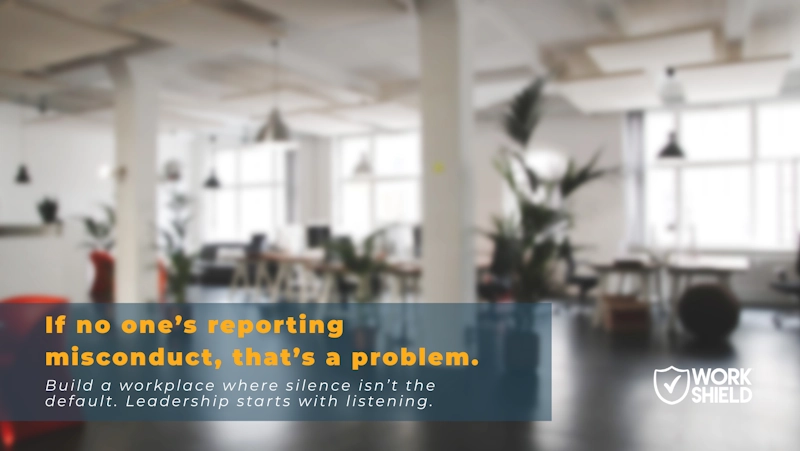Beyond the more recognizable short-term effects, harassment also has the potential to impact mental health long-term. To mitigate the effects of harassment on mental health, employers need to realize the significance of workplace harassment on their employees including long-term effects and impact on overall workplace productivity to create a healthier, safer workplace environment.
Understand the Statistics of Workplace Harassment
Workplace harassment can range from physical, verbal, visual, or written forms. Any unwelcome conduct in the workplace based on age, race, gender, religion, disability, or other protected characteristics is considered workplace harassment and can include bullying, retaliation, discrimination, derogatory comments, or hostile environments.
With 23% of employees having experienced one or more forms of violence or harassment in the workplace throughout their lives and one in 10 having experienced physical violence to include hitting, restraining, or spitting, it’s imperative employers recognize the importance of instilling solutions that foster an inclusive environment and encourage positive interactions and appropriate communication.
Long-Term Mental Health Effects from Misconduct
According to a recent US national study, sexual harassment negatively influences various mental health outcomes including depression, anxiety, and hostility, as well as alcohol and drug use. Similarly, even after controlling other forms of job stress, the negative impact of harassment on mental health and job outcomes remains.
When harassment is repeated and recurrent, it can be tough on the body, according to Dr. Lynette Adams, clinical psychologist with VA’s Office of Women’s Health at William S. Middleton VA Hospital in Madison, Wisconsin. Mental health effects add up over time and can affect wellbeing – even exacerbating physical health conditions like high blood pressure or leading to sleep disturbance.
Additionally, workplace harassment or bullying promotes self-isolation, which can lead to embarrassment and self-doubt. This impact on an employee’s self-esteem and emotional well-being can, in turn, lead to lack of productivity in their job and become a vicious cycle of self-doubt.
Impact on Workplace Productivity
Not surprisingly, employees experiencing the mental effects of harassment become less engaged and motivated with roughly 20% being less productive overall when compared to generally happy employees. In addition, unengaged employees typically means less team collaboration and cohesiveness.
Frequent voluntary turnovers and burnout also occur due to the daily strain of workplace sexual harassment or bullying, which causes increased costs for organizations. SHRM estimates that employers pay roughly $4,700 per new hire, plus the cost of the hiring managers’ time.
These repercussions underscore the significance of cultivating secure and inclusive settings characterized by mutual respect. In such environments, harassment behaviors and communication are not accepted, and those accountable for their actions should face appropriate consequences.
Creating A Healthier, Safer Workplace Environment
For employers seeking solutions and ways to reduce workplace harassment, there are several proactive options beginning with developing policies that provide clear definitions of what is considered harassment or bullying within the workplace and the expectation of employees. Employers can also require their teams to attend annual training on identifying and reporting workplace harassment, as well as provide orientation and training for all new hires.
By utilizing a third-party misconduct management solution, organizations can resolve harassment cases and mitigate risks while also fostering a healthy work environment. Doing so will ultimately help mitigate risk for not only short-term effects of harassment, but long-term effects as well.
Addressing the Fear of Retaliation in Workplace Harassment Reporting
A significant barrier to addressing workplace harassment is the fear of retaliation. Many employees hesitate to report incidents, worried about potential backlash from peers or superiors. According to the Equal Employment Opportunity Commission (EEOC), about 75% of employees who spoke out against workplace mistreatment faced some form of retaliation. This fear can exacerbate mental health issues, as employees may feel trapped and powerless, increasing feelings of anxiety and stress.
Recognizing this, Work Shield provides a robust solution that emphasizes safety and confidentiality in reporting harassment. With our third-party misconduct management solution, reports are handled externally, which significantly reduces the fear of retaliation. Employees can report incidents through multiple channels, anonymously if they choose, so that they feel secure and supported. This approach not only encourages reporting but also contributes to a culture of transparency and accountability, vital for a healthy workplace environment.
By employing such a system, organizations see a lower incidence of unreported harassment, which is crucial for tackling the root causes of workplace distress and maintaining mental and emotional well-being among employees.
Discover how Work Shield’s misconduct solutions can protect your team.





